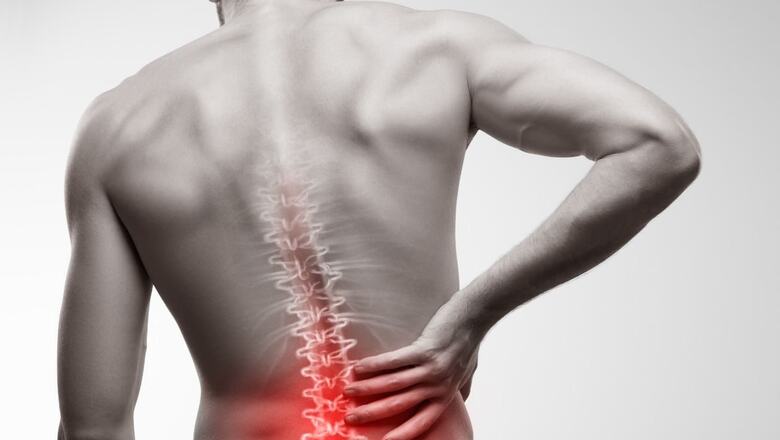
267
views
views
Dr Arun Bhanot, Director, Spine Surgery, CK Birla Hospital, Gurugram explains the causes of lower back pain
Lower back pain is incredibly common, affecting many people at some point in their lives. While it can be distressing, it’s important to remember that understanding the cause is the first step to finding relief. Here are some of the most common reasons for lower back pain:
Musculoskeletal issues:
- Strains and sprainsThese are the most frequent contributors, often caused by overuse, awkward movements, or lifting heavy objects incorrectly.
- ArthritisWear and tear on the spinal joints, particularly osteoarthritis, can lead to pain and inflammation.
- Disc problemsHerniated discs, where the inner gel material pushes out, can irritate nearby nerves and cause pain radiating down the leg (sciatica).
- Spinal stenosisNarrowing of the spinal canal puts pressure on nerves, resulting in pain, numbness, and weakness.
- ScoliosisAn abnormal curvature of the spine can cause uneven pressure on the discs and joints, leading to pain especially when scoliosis is due to degenerative reasons.
- SpondylolisthesisThis condition occurs when one vertebra slips forward over another, causing pain and instability in the spine.
- Trauma or injuryFalls, car accidents, or other injuries can damage the structures of the lower back and cause pain.
- Poor postureSitting or standing with poor posture over time can strain the muscles and ligaments in the lower back, leading to pain.
- ObesityExcess weight can put strain on the lower back leading to poor posture and increase the risk of developing conditions like osteoarthritis or herniated discs.
- SciaticaCompression or irritation of the sciatic nerve, which runs from the lower back down the legs, can cause pain, numbness, and tingling in the lower back and legs.
Most back pains are usually self limiting and can be managed by simple measures like correcting posture, physical therapy and regular exercises. But if a back pain persists beyond a few days, a consult from spine specialist should be sought to distinguish the more serious causes from regular and innocuous ones, so as to get the timely and correct treatment.


















Comments
0 comment